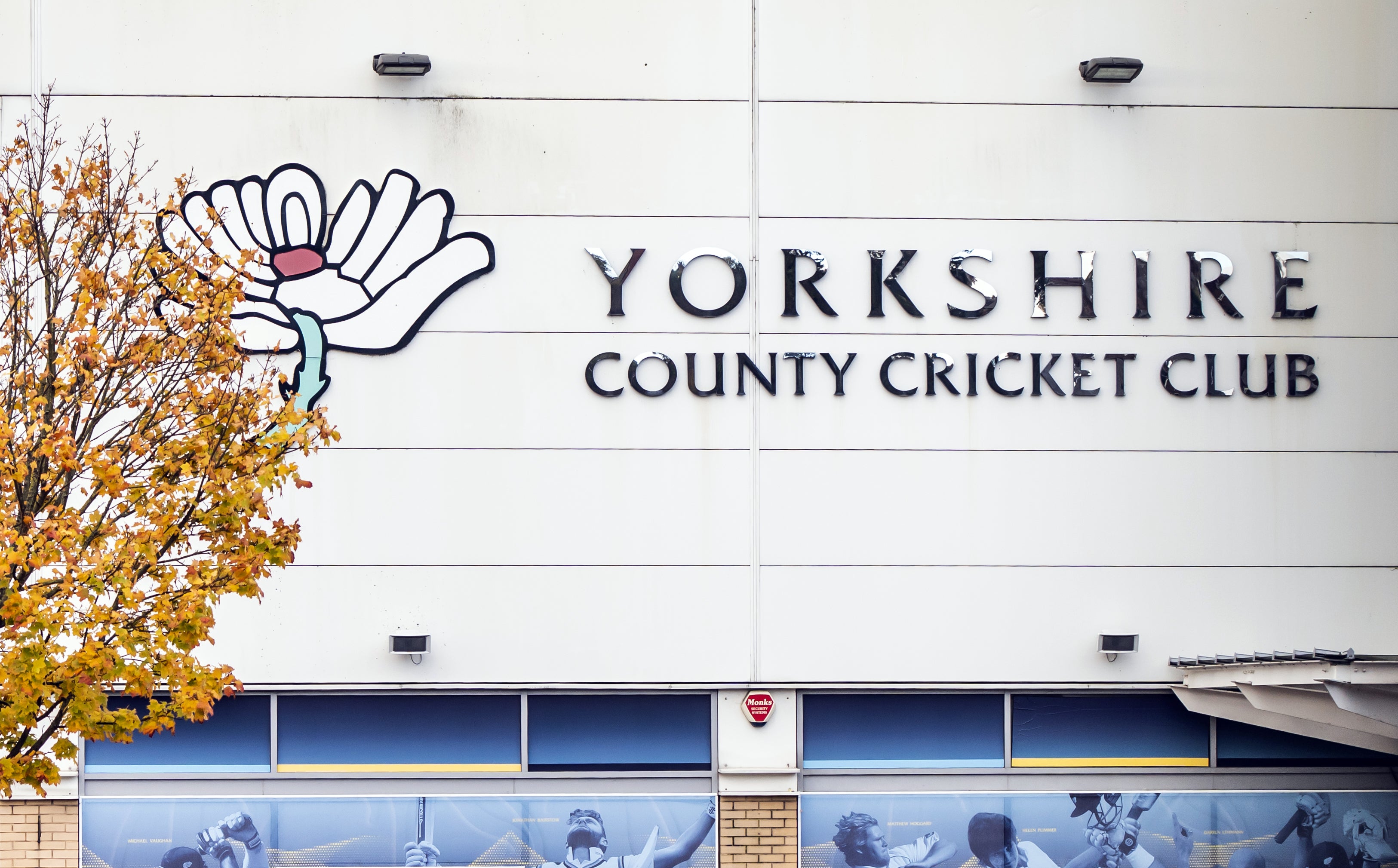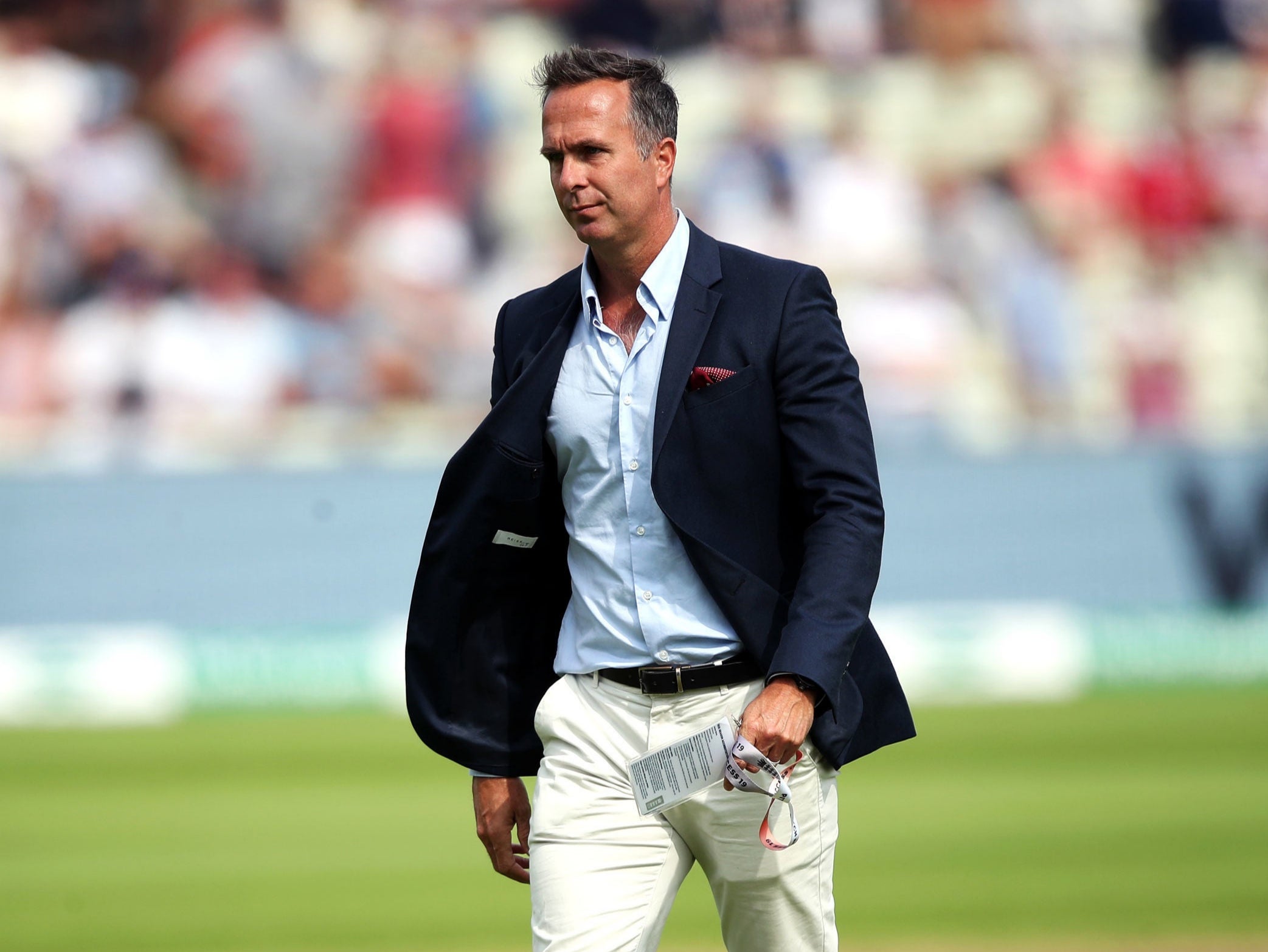Yorkshire racism scandal finally forces those in power to feel the heat
It has taken far too long for cricket’s protective wall to crumble but Azeem Rafiq’s determination to be heard is now encouraging others to come forward, writes Vithushan Ehantharajah


Your support helps us to tell the story
From reproductive rights to climate change to Big Tech, The Independent is on the ground when the story is developing. Whether it's investigating the financials of Elon Musk's pro-Trump PAC or producing our latest documentary, 'The A Word', which shines a light on the American women fighting for reproductive rights, we know how important it is to parse out the facts from the messaging.
At such a critical moment in US history, we need reporters on the ground. Your donation allows us to keep sending journalists to speak to both sides of the story.
The Independent is trusted by Americans across the entire political spectrum. And unlike many other quality news outlets, we choose not to lock Americans out of our reporting and analysis with paywalls. We believe quality journalism should be available to everyone, paid for by those who can afford it.
Your support makes all the difference.Consider 5 November 2021 as day one. Not merely three years since Azeem Rafiq first made allegations of racism and bullying at Yorkshire, approaching the club with his grievances that initially went unheard. Nor 15 months after he decided to go public with those claims because they were eating him up inside.
On Friday Yorkshire chairman Roger Hutton stepped down along with two other board members, Hanif Malik and Stephen Willis. After an independent investigation commissioned by the county dragged on, its findings held back for as long as possible, we have our second, third and fourth casualties to a deliberately stodgy process over a gravely serious matter. The first, of course, was Rafiq.
Considering this day one is important to the overall narrative. Only now, after members of parliament waded in, after Hutton, chief executive Mark Arthur and club director of cricket Martyn Moxon were ordered in front of the Department for Culture, Media and Sport (DCMS) select committee, after the ECB stripped Yorkshire of international fixtures, are we approaching anything close to justice. Only now are those in trouble finally feeling the heat.
About time, too. It is well known Rafiq has been intimidated during this process. It started right at the beginning when Yorkshire insisted that, for full transparency, some of his previous misdemeanours would have to be put on the table. They were taken aback when Rafiq agreed.
That sentiment continued on Wednesday when Gary Ballance saw it fit to mention – twice – that he and Rafiq used to drink together. Unnecessary detail in a statement which he accepted repeatedly referring to Rafiq as a “p***”. This was in keeping with the attempts to discredit Rafiq, centred around his Muslim faith in which the consumption of alcohol is forbidden. It smacked of a way of shaming Rafiq into taking backwards steps. You’d think they’d know better than that by now.
There were also private messages sent from those who feature in Yorkshire’s own report, most referring to “big claims” being made with little evidence. Then, of course, how long this has all taken, and how little movement there had been before this week. Three years after he went to the club with his allegations, and 15 months after making them public.
The problem for Yorkshire was Rafiq had already lost plenty. And now the strong character they recognised early on when making him their youngest captain at the age of 21 was not going quietly.
It is unclear how many more people will come forward of their own accord. After Ballance’s admission came one from former England and Yorkshire captain Michael Vaughan. In his column for the Daily Telegraph on Thursday evening, he revealed he was implicated in Yorkshire’s report, denying ever having said the following to a group of Asian players at the club: “Too many of you lot, we need to do something about it.” On Friday morning, one of those players, former Pakistan international Rana Naved-ul-Hasan, corroborated Rafiq’s version of events. The BBC has stood down Vaughan from his radio show on Monday in light of the allegations.

Indeed, that may put off others from arranging their own counsel and publicly outing themselves. The flip side is the progress over the last week off the back of Rafiq’s endeavour has created an environment for others to come forward to back up existing allegations after fearing a lack of support that is no longer an issue. Others will also feel encouraged to speak of their own troubles.
A report in the Daily Mail on Friday contains a story from a former Yorkshire player of Asian heritage who claims to have overheard two senior players currently still involved at the club boasting about having sex with a woman on her period and “all they could find is a Muslim player’s prayer mat to clean it up”.
Former age-group cricketers at Yorkshire have contacted The Independent speaking of their experiences, including non-Asians who witnessed derogatory comments made by senior coaches. Even current cricketers note racial abuse when playing against Yorkshire, particularly at Scarborough.
If this feels like a tidal wave, it is only because so much has been held back until now. Even the conversation has been stifled because of various interjections. Sky Sports were due to address Rafiq’s allegations in a segment during the Headingley Test last summer between England and India. However that was pulled at the last minute when Sky was misled about legal issues and when the report was going to be released.
The BBC was similarly hamstrung when Vaughan revealed to his Test Match Special colleagues he was named in Yorkshire’s report. That might explain why the BBC has not done anything meaningful on the subject. Many within the organisation were deeply uncomfortable, in part because it reflected a conflict of interest, even guilt by association.
And yet, for all the justified anger at all this, it is important not to simply view Yorkshire as a lost cause. Wholesale changes are needed, not least around personnel. Even so, Hutton’s departure leaves the establishment a well-intentioned man down.
It is true he could have done more, and also true that he tried. His statement, the first of its kind from anyone associated with the inner workings of the investigation in that it was honest and contrite, spoke of “constant unwillingness from the executive members of the board and senior management of the club to apologise” and a culture refusing to change. “The club should have recognised at the time the serious allegations of racism.”
There has also been a concerted effort from those involved with Yorkshire’s Cricket Foundation to make the club more open, and from age-group coaches to rid pathways of antiquated prejudices. The kind of stuff that takes time and, though seemingly academic given the current scandal, must not be sidetracked. If anything, those channels need more support than ever at a time like this.
It is also worth other cricketing institutions having a look at their own houses rather than gazing into Yorkshire’s while throwing stones. Of course, racism and discrimination are societal issues, but there are spaces where it flourishes more than others. Cricket, as an elitist middle-class sport that struggles with diversity, has been a greenhouse for these attitudes to grow. And Hutton’s swipe at the ECB for declining to intervene when he called for an investigation at the very start is deeply concerning. ECB chief executive Tom Harrison’s briefing on Friday morning was mealy-mouthed and ultimately, empty, filled with extracts from the executive management playbook rather than the riot act.
There will be the usual arguments that these are different times. That the club was reflective of the world around it back then. Rafiq’s claims fall into a period over the last 12 years. Any insistence that 2009 was an era of racial or social illiteracy is merely a disingenuous attempt to contort casual yet malicious intent into honest ignorance.
What is true is those guilty of racial harassment towards Rafiq and others, along with those who let it slide, were better insulated from the repercussions. Now, finally, that is no longer case.



Join our commenting forum
Join thought-provoking conversations, follow other Independent readers and see their replies
Comments